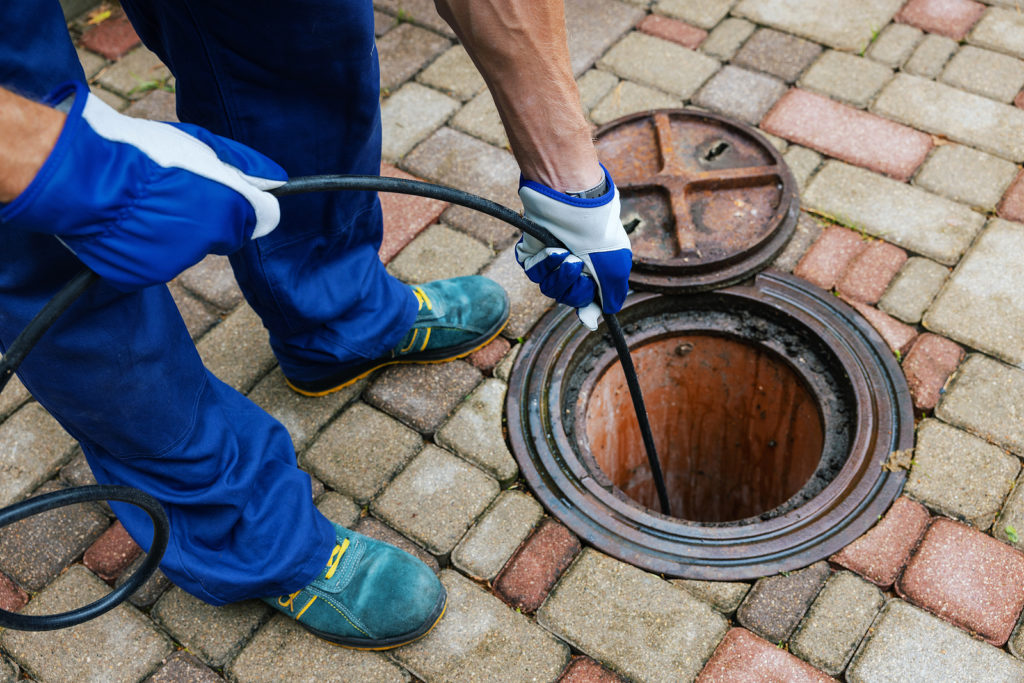Menu
157 Castel Hill Ave,
New Addington , Corydon,
CRO OTJ, UK
plumber_adrian@yahoo.com
Email Address
New Addington , Corydon,
CRO OTJ, UK
Email Address

When it comes to having a functioning bathroom, a blocked toilet can be quite a nightmare. It can cause serious inconvenience and instill anxiety in anyone who experiences it. No one wants to find themselves in a sticky situation where their only option is to unclog a toilet themselves.
Therefore, it is extremely important to have a good understanding of the causes of blocked toilets, how to prevent them, and the various solutions available to clear them. With that in mind, this blog post has been written with the goal of helping you navigate through all of that.
We will take you through the common causes of blocked toilets so you know what to avoid, provide you with practical tips on how to prevent them from happening so you can take action, and discuss a range of effective solutions to clear the clogs, ensuring that you maintain a smoothly functioning plumbing system. With all of this valuable knowledge at your fingertips, you will be well-equipped to tackle blocked toilets effectively and confidently.
Blocked toilets can occur due to various reasons, and being aware of these causes can help you take preventive measures. Here are some common culprits behind blocked toilets:
Excessive Toilet Paper: Using an excessive amount of toilet paper or flushing non-flushable items down the toilet can lead to blockages. Toilet paper that doesn’t dissolve easily or other items like wipes, sanitary products, or cotton balls can accumulate and obstruct the drain pipe.
Foreign Objects: Accidentally dropping objects like toys, jewelry, or small bathroom items into the toilet can cause blockages. These objects can get lodged in the trap or further down the drain pipe, impeding the flow of water and waste.
Buildup of Waste and Debris: Over time, a buildup of waste, including human waste, can accumulate in the toilet drain pipe, especially if the toilet is not flushed properly or regularly.
Tree Root Intrusion: In cases where the toilet drain pipe connects to an outdoor or underground line, tree roots can infiltrate the pipe and cause blockages as they grow and expand.

Preventing blocked toilets is crucial for maintaining a functional plumbing system. By following these preventive tips, you can reduce the risk of toilet blockages:
Use Toilet Paper Wisely: Use an appropriate amount of toilet paper and avoid excessive wadding or multiple flushes for large quantities. Ensure that only flushable toilet paper is used, avoiding thicker or non-dissolvable varieties.
Educate Household Members: Teach everyone in your household about proper toilet usage and what should and shouldn’t be flushed. Encourage the use of waste bins for disposing of non-flushable items.
Install a Toilet Paper Holder: Installing a toilet paper holder or dispenser near the toilet can help regulate the amount of toilet paper used and prevent excessive flushing.
Regular Cleaning and Maintenance: Clean and maintain your toilet regularly to prevent the buildup of waste and debris. Consider using toilet cleaning products that help break down waste and prevent blockages.
When faced with a blocked toilet, it’s important to know how to effectively clear the blockage. Here are some solutions to try:
Plunger: A plunger is often the first line of defense when it comes to clearing a blocked toilet. Ensure a tight seal around the drain hole and perform firm plunging motions to create pressure that dislodges the blockage.
Toilet Auger: A toilet auger, also known as a closet auger, is a specialized tool designed to remove stubborn toilet clogs. Insert the auger into the toilet drain and rotate it to break up or retrieve the blockage.
Hot Water and Dish Soap: Pouring a bucket of hot water mixed with dish soap into the toilet bowl can help dissolve the blockage. Let it sit for a while before attempting to flush the toilet.
Enzyme-based Cleaners: Enzyme-based toilet cleaners can be effective for breaking down organic waste and preventing future blockages. Follow the product instructions and allow sufficient time for the enzymes to work.
Seek Professional Help: If the blockage persists or if you suspect a more severe issue, it is advisable to seek the assistance of a professional plumber. They have the expertise and specialized equipment to diagnose and resolve stubborn toilet blockages.
Blocked toilets are one of the most frustrating plumbing problems. Having to deal with a blocked toilet is not only unpleasant, but it can also cause significant water damage if not addressed promptly. To avoid this, it is important to understand the underlying causes of such issues, implement preventative measures, and use effective solutions.
For example, being cautious when using toilet paper and educating other household members on proper usage can go a long way in avoiding these blockages. Regular cleaning and maintenance, using a plunger or toilet auger, and hot water with dish soap can help clear blockages. Enzyme-based cleaners can also assist in preventing future blockages. However, if the issue persists, it is essential to contact a professional plumber for assistance. By following these tips, you can reduce the risk of blocked toilets and maintain a smoothly functioning plumbing system for your household.